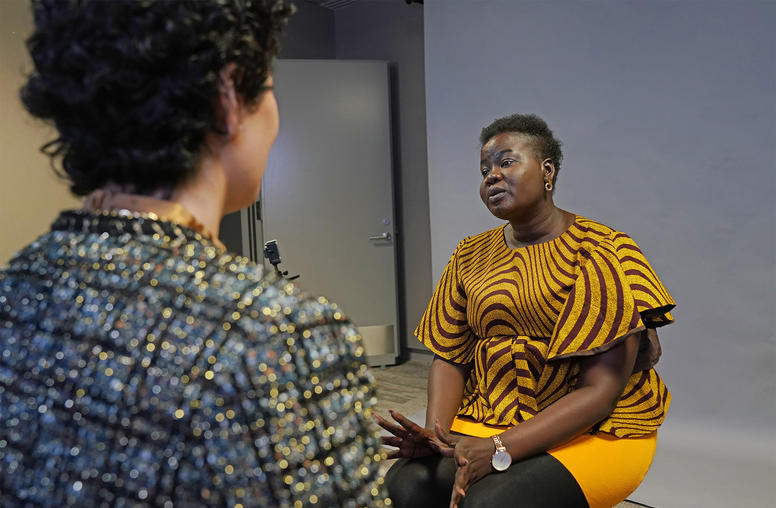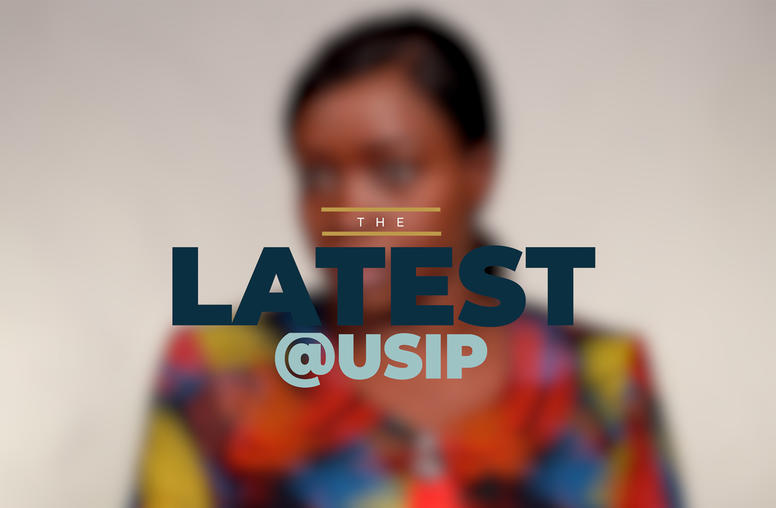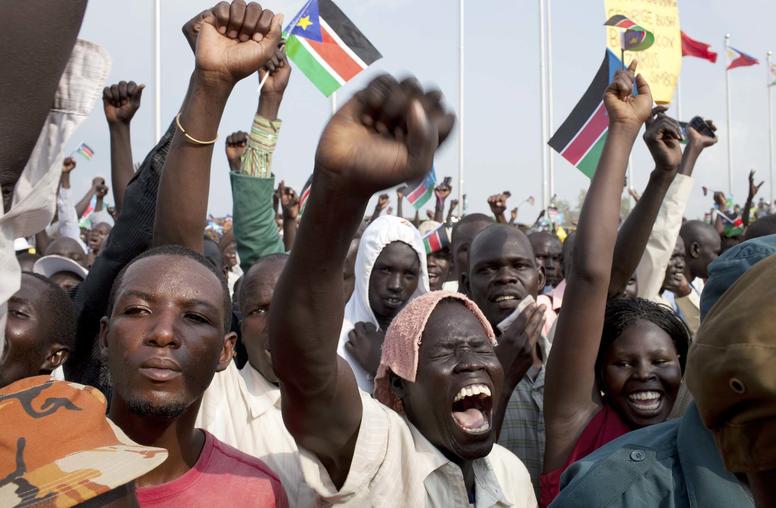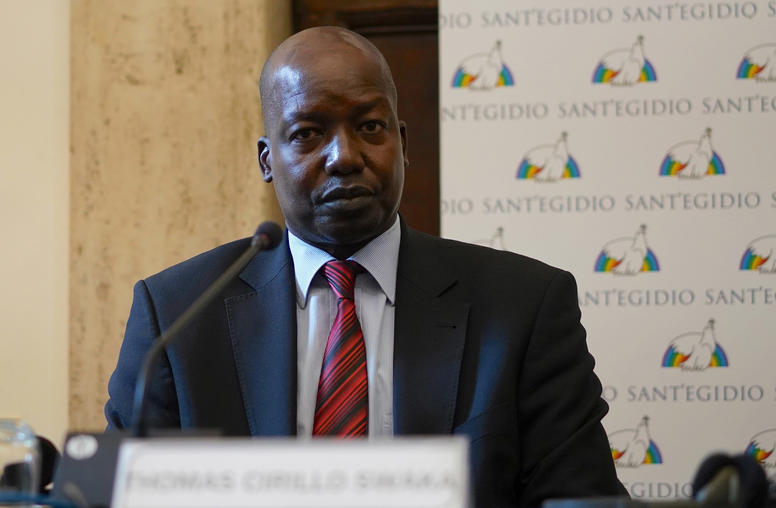South Sudan’s Aluel Atem created a women’s development organization, Crown the Woman-South Sudan, and helps other civil society organizations advocating for women and children’s rights. Aluel was one of 25 young civil society leaders from a dozen nations facing violent conflict whom USIP gathered in 2017 for training and mentorship with the Nobel peace laureate and spiritual leader, the Dalai Lama. In recent years, USIP and the Dalai Lama have joined to strengthen such young leaders, recognizing the outsized role that youth can play in halting the world’s violent upheaval and warfare, which is concentrated in countries with relatively young populations.
Aluel describes her experience in the essay below:
It’s not every day that you find an influential person who believes in young people and has confidence in their power and ability to be impactful and bring change. In November 2017, I had the opportunity to meet with and be mentored by His Holiness the Dalai Lama. I met him at a point in my life when nothing seemed to make sense—but, he helped me look at life from a whole new angle, an angle of humility and compassion.
I don’t think I can ever clearly explain or justly quantify the impact the moments with His Holiness have had on my life, but I know something transformative happened—I came back feeling like an entirely different and brand-new person.
The Dalai Lama’s Reassurance
On the first day with the Dalai Lama, I was among the first group that got to ask His Holiness a specific question about my own country. When I described what was going on in South Sudan, his advice was “invest in education.” I had not mentioned my own work, and it was as though he just read my mind. I co-founded an organization known as Crown the Woman-South Sudan and the promotion of girl-child education is one of our primary areas of focus. With that response, he reassured me that I am on the right path with what I am doing for my country.
The name “Crown the Woman” is a very personal statement to me. I grew up watching women around me, including my mother, play tremendous roles, but today very little is known or mentioned about women’s contribution to the liberation struggle and the current nation-building processes. This organization has become my greatest self-expression platform. Through this platform, I am able to address issues on sexual- and gender-based violence, education, conflict resolution, management and transformation in South Sudan.
The Dalai Lama filled my cup to the brim with hope, passion and positivity.
As the Dalai Lama continued to answer questions, I heard solutions that were applicable to my country even though the questions came from peacebuilders from different continents and countries. Altogether we were 25 young people from different countries and continents, we all felt the same pain and faced the same challenges: conflict and the burning desire to challenge the status quo.
I had never known the value of investing in one’s inner peace and that was my biggest take away. I learned to accept each day as it comes no matter how stormy it is—to find happiness in the simplest things in life. His Holiness taught me how to be at peace with myself, and that’s a gift I could never find anywhere in the world. I actually started gaining weight after the visit. My friends and family would ask, “What are you eating lately that you’re not sharing with us?” I would tell them, and I still tell them, that I am at peace with myself. Of course, they laugh thinking I am just being funny, but this newfound piece of mind is very real.
Young People ‘Will Bring Peace and Reconciliation’
“My generation was a ‘we’ and ‘they’ generation and that’s why the world is in this mess today, but your generation is the one that will bring peace and reconciliation to the world,” His Holiness said. I had never felt generationally tasked to do something the way I did in that moment. That statement has become an alarm in my head that I cannot stop. On days when I go to bed feeling lost and demoralized, I am reminded why I must keep pushing back. The Dalai Lama filled my cup to the brim with hope, passion and positivity . No matter how dark it gets, I will always choose to be a peacebuilder and a fighter for the rights of women and children in my country because I have a “generational role” to play. He delegated me to be South Sudan’s little Dalai Lama and I don’t intend to ever let him down.
You simply can’t spend time with His Holiness and remain the same person, he changes your every perspective. I hope USIP will give more young peacebuilders the opportunity to have this experience



